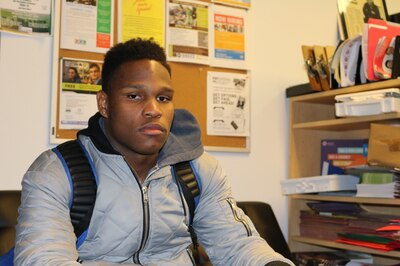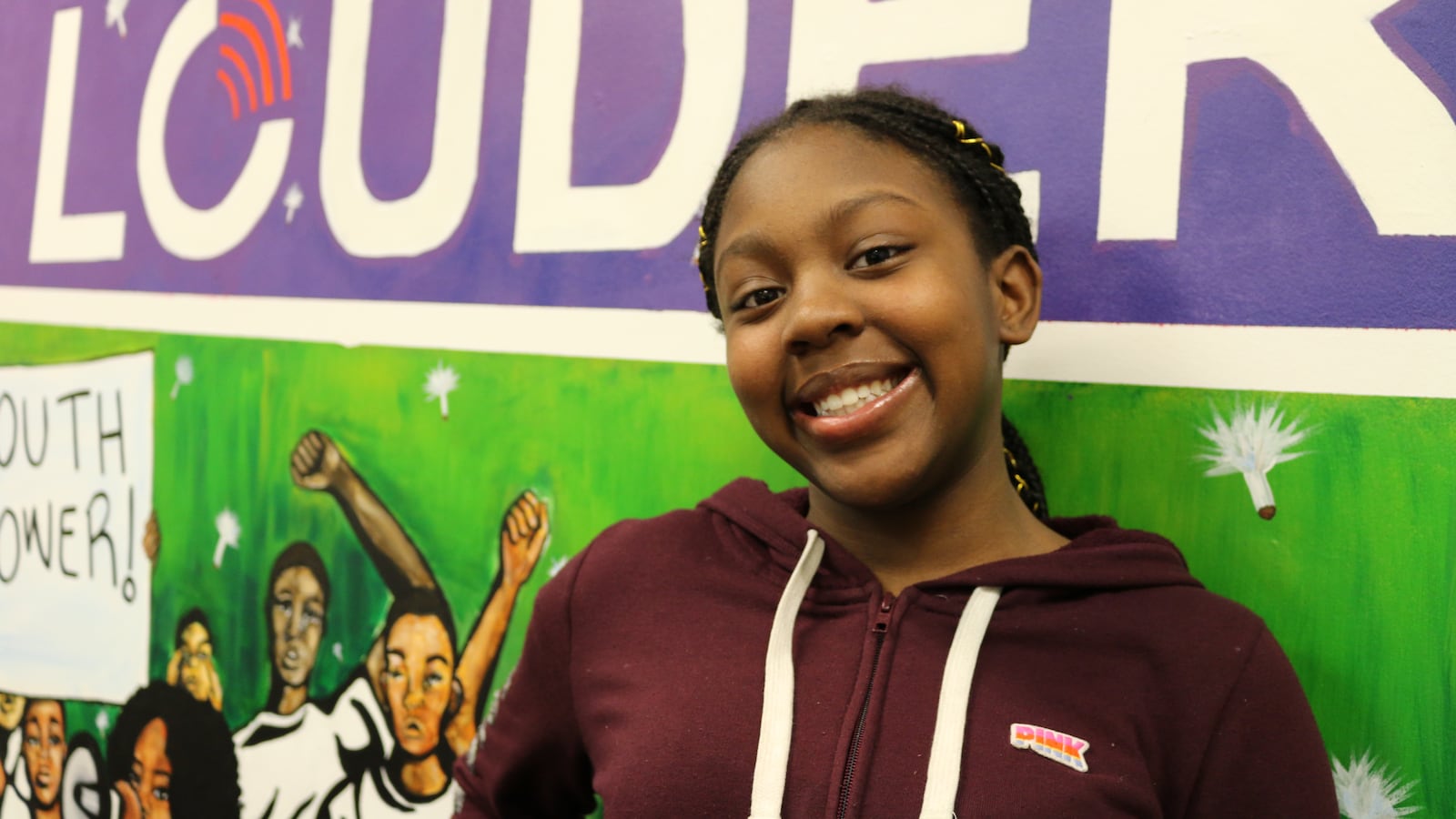Hours after more than 100,000 New York City students walked out of their schools to protest gun violence, Hernan Davis stepped into the basement of a Crown Heights storefront.
There, he joined a group of about a dozen other teens as they dug back into work that they’ve been tackling since long before last month’s Parkland, Florida, school shooting launched a national student-led movement for stricter gun laws.
“We don’t fear school shootings here,” said Davis, a senior at STAR Early College School. “We’re worried about walking down the street.”
Davis belongs to Youth Organizing to Save our Streets, a program run by the Crown Heights Community Mediation Center since 2011. The organization trains teens who have been touched by gun violence to become community organizers — in the hopes of preventing more loss and hurt. Based in Crown Heights and Bedford-Stuyvesant, other groups do similar work across Brooklyn and the Bronx with adults.

As part of its after-school programming, high school students meet twice a week to work with professional artists on original rap songs and performance pieces. They train to become peer mediators, plan community events, and recognize trauma in their own lives that, over time, may grow to seem normal.
Whenever there is a shooting, the teens also join the adult-led branch of S.O.S in a neighborhood response, rallying to allow people to share their concerns about gun violence and call for change.
“If you do grow up around violence, it can be easy to get used to it. You go numb,” said Heather Day, who leads youth programs for the organization. “But when people come to YO S.O.S., we do try to create a space where we can actually talk about what you’ve been seeing, maybe start feeling some of that hurt again, but also feel empowered to do something about it.”
The YO S.O.S teens hope to harness the national attention currently heaped on young people fighting gun violence to grow support for their own recommendations for change. They say reform is needed within schools to help keep students safe there — and on the streets.
Among their proposals: training for school staff to recognize how exposure to violence can affect learning and behavior in school, lessons on how to de-escalate potential conflicts, and mediation instead of harsh punishment when problems do arise. The changes they’d like to see fall in line with broader advocacy efforts to change the way students are disciplined and the use of metal detectors in schools — both issues that students raised in a recent town hall organized by Mayor Bill de Blasio in response to the Parkland shooting.
“Schools should make children feel like they always have a place to go, to talk to someone,” said Aaliyha Johnson, a sophomore at John Jay School for Law. “They should build bonds with the kids.”
As they continue their work close to home, YO S.O.S. also wants to join the country’s youth in their push to reduce gun violence. The group is trying to raise $10,000 to travel to Washington, D.C. for the March for Our Lives on March 24. The money would go towards food and travel expenses for about 30 teens, and also help fund paid internships to give teens more of a leading role in the organization.
“This is like the golden age for our generation,” said Cassandra Simpson, a sophomore at Brooklyn High School of the Arts and a member of YO S.O.S. “We’re expressing how we feel and we have a voice.”

